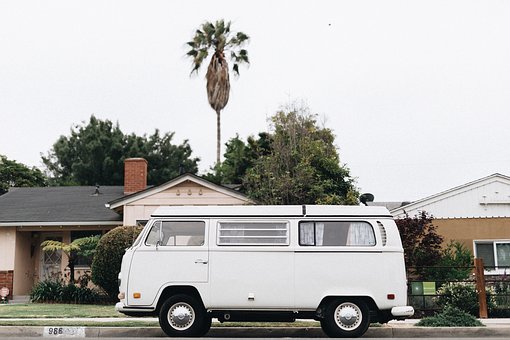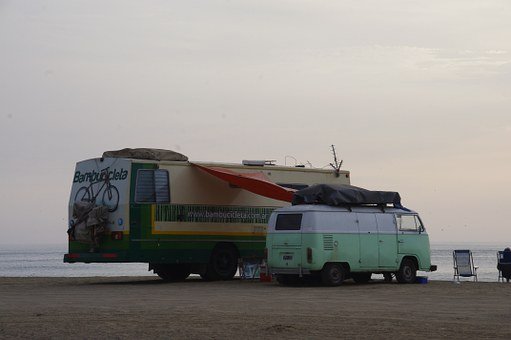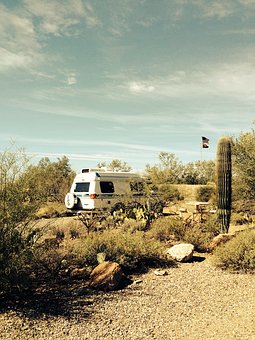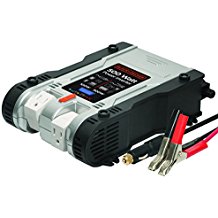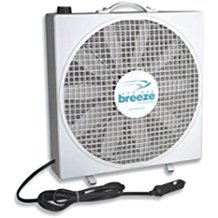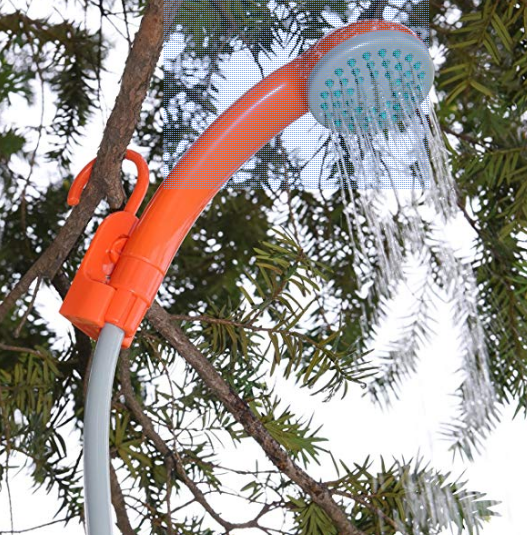Bill Jones
Proud Veteran

Trustify Me
Please visit my other blogs
Tactical Flashlight
100 Parks 5000 Ideas
Camper Awning Solar Lights Portable – 6 Piece
Desert Camping
The sun is setting behind the mountains as I set up camp in the Sonoran Desert of southwest Arizona. I traveled in my RV to the western part of our great country recently and spent some time boondocking in the desert. Boondocking, also known as dry-camping can be defined as camping with no electrical, water or sewer hookups. Arizona is the destination of literally thousands of boondockers, especially during the winter months. Snow birds descend upon the small town of Quartzsite, Arizona swelling it’s population from the normal 3500 or so to over a million during the winter months. Not only is the weather great in southwest Arizona during the winter, but Arizona has in excess on 12 million acres of BLM (Bureau of Land Management) Land in Arizona that is open to the public for camping and recreation and most of it is free.
Posted in Uncategorized
Comments Off on Desert Camping
London Bridge
This is the original London Bridge, now in Arizona.
During a recent RV/Camping trip to the western part of our great country, I found myself in Lake Havasu, Arizona. Some of you may know the story of the London Bridge by way of a song when we were children. The title of the song is: London Bridge is Falling down. I took the photo below while in Lake Havasu.
The London Bridge was built in the 1830’s and formerly spanned the River Thames in London, England. In 1967, it was purchased from the city of London by Robert P. McCulloch. * It was then dismantled and shipped to Arizona where it was reassembled over Lake Havasu.
London Bridge today spanning Lake Havasu, Arizona
 * Robert Paxton McCulloch (May 11, 1911 – February 25, 1977) was an American entrepreneur from Missouri, best known for McCulloch chainsaws and purchasing the “New” London Bridge, which he moved to one of the cities he founded, Lake Havasu City, Arizona.
* Robert Paxton McCulloch (May 11, 1911 – February 25, 1977) was an American entrepreneur from Missouri, best known for McCulloch chainsaws and purchasing the “New” London Bridge, which he moved to one of the cities he founded, Lake Havasu City, Arizona.
*Source: McCulloch – Wikipedia
If you liked this post, please follow me. I’ll be bringing you more good quality content in the weeks to come.”
Until next time…
Posted in Uncategorized
Comments Off on London Bridge
Low Cost and Free RV Camping
There’s a lot of interest today in packing up the family and dog, and hopping into your RV and hitting the open road. However, to travel in an RV is quite expensive. If you’re on a budget, the challenge is to keep your costs low as possible and still have a good time. One way to do this is to do your homework by researching campgrounds and other places you might want to spend the night.
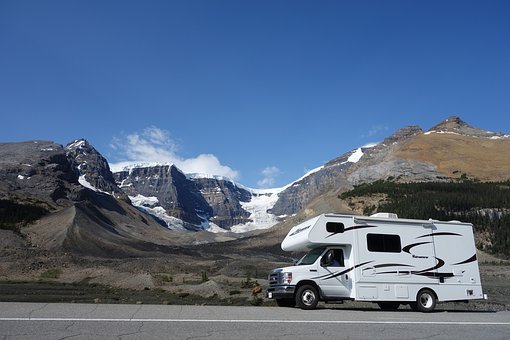
There are many ways to find the low cost or free places to stay during your RV travels. The first of course is Google. Throw some keywords into Google and you’ll be surprised at what comes up. There are also quite a few apps available as well that can direct you to free and low cost overnight stays or even for spending a few day or weeks. I’ll list a few apps at the end of this article that might help you with your research.
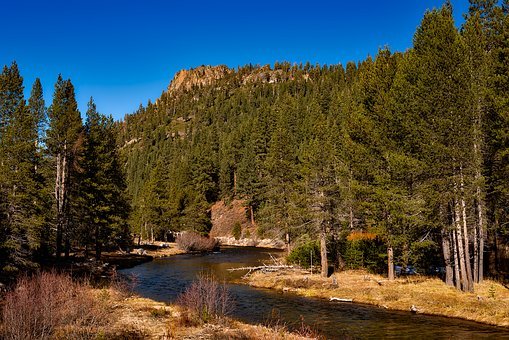
Full service RV parks have become quite pricey, even to the point of costing as much as a motel room. This is especially true if the park is located near a city or major highway. Instead of a park like this, you may opt for a park with less amenities. You might also consider a state park. Keep in mind though, that some state parks and other recreational areas have no hookups and that’s fine if you’re trying to watch your money.
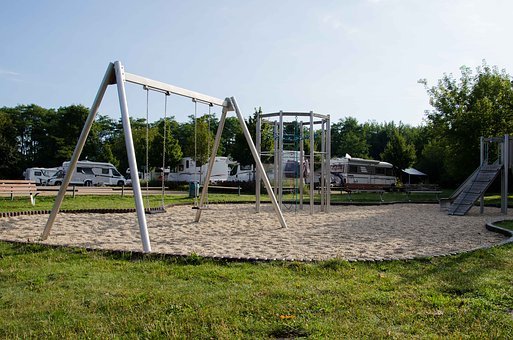
For the really frugal RV’er (and adventurer), you might want to consider camping out on BLM (Bureau of Land Management) land or in a National Forest. Rarely is there any charge at all for these places and guess what? You won’t find any paid areas offering the views and terrain these areas offer. Remember this, there are no hookups, so you’ll need to carry fresh water and a means of producing electricity if you want or need it. Personally, this is the type camping I have been doing for years. I can’t recall the last time I stayed in an RV park and paid those high rates. I have solar panels that provides all my electrical needs. These areas are quieter, more peaceful and the most scenic.
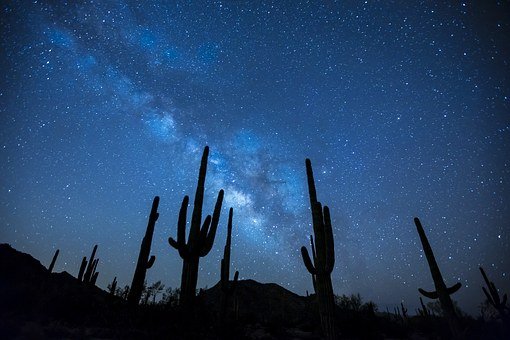
A couple of caveats to keep in mind are the roads and dust. All of the roads on BLM Land and National Forests I’ve been on are washboard type dirt and your speed is very limited because of this. Insure everything in your RV is secured and expect dust to get into everything. If you can live with that, you’re in for some very special camping. Another thing is that some of the roads can be a challenge even for small vehicles, so if you’re in a larger type motor home, trailer or 5th wheel, you may experience more challenges in reaching certain locations.
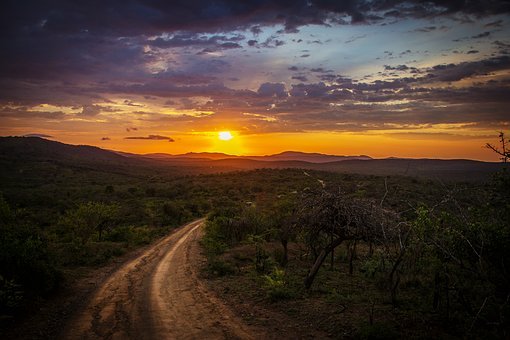
As promised, here are some apps and other information that you might find helpful during your research.
NOTE: The below listed apps are on my iPhone (IOS), but they may also be available for Android. Check it out and see.
CAMPENDIUM: This app has a great deal of information showing such things as nearby RV Parks, nearby public land, nearby free camping, etc.
OH RANGER! : Helps in your search for parks
RV PARKY: Assists in finding RV parks near a city or place
ROAD TRIPPERS: Helps in mapping out your trip with interesting stops along the way
THE DYRT MAGAZINE: The latest camping tips, stories, lists, etc.
WI-FI MAP: Helps find wi-fi on the road
GAS BUDDY: Finds gas stations near you with prices
WAZE: Never leave home without it. If you’re not familiar with this app, you’ll need it and love it. GPS in real time and even alerts you to nearby police, traffic, obstacles on the road, etc
www.freecampsites.net This one is not an app, but a website that is my favorite “go to” for finding free places to park:
You might also want to check out TRAILER LIFE or WOODALL’S that can help you find those RV park sites that have lower rates.
“If you liked this article, please follow me. I’ll be bringing you more good quality content in the weeks to come.”
Until next time…
Posted in Uncategorized
Comments Off on Low Cost and Free RV Camping
How to Find Free RV Camping Anywhere
Did you know that it’s not only possible but very probable that you can RV across North America and never pay for camping? RV’ers who are experienced boondockers or dry-campers (camping without hookups) prepare themselves for such RV’ing adventures, easily find free places to stop and sleep for the night practically anywhere.
It matters little whether it’s city or country, simply scout the area for suitable free camping locations. If you have a smaller, stealthier RV, all the better for residential city streets, some parks and parking lots.
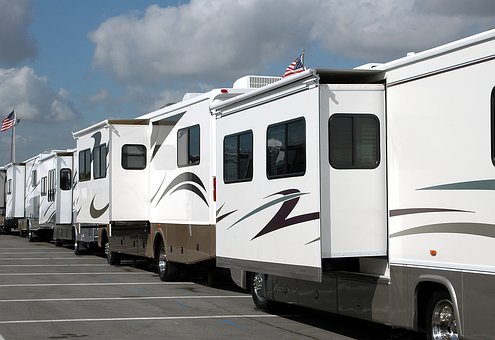
While scouting an area, be sure to look closely for any “no trespassing or no overnight parking” signs. My RV is a cargo van that I’ve built out into an RV and it’s totally stealth; nothing on the outside to give it an RV appearance. I can park it in any parking space, even underground parking lots. Because of this, I’ve been able to stay overnight on residential city streets without ever being harassed. Not all RV’s can do this, however. So, as long as overnight parking is not prohibited, you should be fine in an RV.
Walmart comes to mind when parking in lots. Walmart, for the most part welcomes RV’ers to spend a night in their parking lots as long as you do not interfere with customer traffic. Some Walmart’s request getting permission from the local manager. Some Walmart’s prohibit overnight parking and signs are usually posted in these lots indicating so. I would highly recommend heeding any signage and respect the owners of the lots. Some Cabela’s welcome RV’er and some even have dump stations. Cracker Barrel also comes to mind as a welcome place to park for the night, but a call to the manager of that store would be in order and ask for permission. I’ve never been turned down.

I would recommend you be honest with the manager and let them know your intentions. Take time for a friendly chat. I might also recommend that you not use their welcome to their lots to turn your overnight stay into a “camping” stay. By this I mean, do not let out your roll outs out and don’t set up your lawn chairs and portable grill. Leave the place cleaner than it was when you arrived. During my travels and overnight stays in parking lots, I have seen many RV’ers set up a table, chairs and cook in these parking lots. Not a good idea and it leaves a bad impression on the lot owner for the RV’er that just wants a place to park for the night.
It’s also a good idea to keep yourself and your RV in presentable condition. I think we’ve all heard that first impressions are important. People will judge by your appearance. If the lot owner sees that you make a good appearance, he (or she) will know that you will be considerate of their property as well.
Stores and casino parking lots that are open 24 hours usually have security guards on duty, especially during the nighttime hours. If you have an opportunity, talk with them and let them get to know you a bit. Tell them of your plans to shop the store and spend the night in their lot. Perhaps offer to bring them a cup of coffee and show them your RV and where you’re parked.
Try to be as inconspicuous as possible. Don’t park there with interior lights on and music blaring into the night. Don’t overstay your welcome and spoil it for others. If you have not asked for permission to stay the night in a store or casino parking lot, don’t be surprised if you get a door knock after dark and are asked to move. If that happens, move right away, don’t argue. Again, be friendly and ask if them if they know where you might go for the night. Chances are good the person asking you to move will know where you might go.
Be positive and pay it forward. If someone has helped you along the way to find free campsites, show your appreciation and pass it along to others.
“If you liked this article, please follow me. I’ll be bringing you more good quality content in the weeks to come.”
Until next time…
Posted in Uncategorized
Comments Off on How to Find Free RV Camping Anywhere
Solo Hiking Into The Backwoods
Planning is all important on any hiking trip, especially when hiking alone, even if it’s just a day trip.
Don’t just make a mental plan, but sit down and take some time to insure everything is well thought out. Put your plan on paper, so it has more of an impact on you. Think of what you will need on this trip, taking the terrain into consideration. Most important is water and food. When you think about the amount of water you will need – double that amount and you should be okay. Speaking of water; it’s a good idea to carry a small survival water filter straw in your gear. These can be purchased online for about 20 bucks and could save your life. Layer your clothing because you can never predict the weather. Be sure extra socks are included as there’s nothing worse than hiking with wet, cold feet. As the old saying goes; hope for the best but prepare for the worst. Your list should also include an extra blanket, waterproof matches, flint and a flashlight with fresh batteries. A good compass is essential because you can never rely on cell phones when back in the wilderness. I know it’s not a pleasant thought, but think “survival” and give thought to having to spend a night in the wild.

When planning your hiking route, check for any alerts in that area for flooding, fires, trail closures or bears before you head out. And speaking of bears, it’s also a good idea to always keep a can of bear spray in your backpack.
Make sure to let at least one family member or friend know where you will be hiking, when you’re planning on leaving and returning. Give them your vehicle description and tag number, if you’re going to an area by vehicle. Keep in mind that solo hiking can be dangerous. If you can get a hiking partner to join you, that would be best.
Should you get lost, your best plan of action at this point is to stop!
Look around you, take your backpack off and find some place to sit down and relax. That may be easier said than done at this point, but you must. Then, close your eyes and take several deep breaths. This will help you relax and you must be relaxed so you can think clearly. After you get your breathing normalized, take another deep breath and hold it for 7-8 seconds and exhale slowly. Do this several times in an effort to clear your thinking. Listen to the sounds around you and continue trying to relax by flexing your shoulders and arms to get your blood flowing properly.
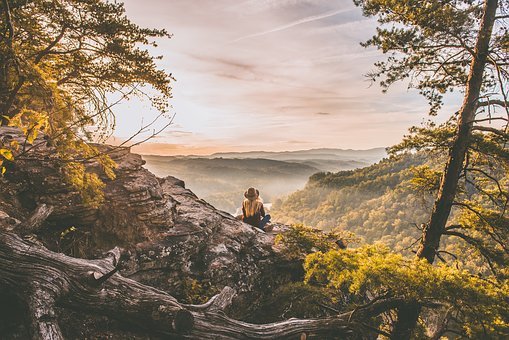
Repeat this for a few minutes and you’ll be able to better assess your situation. You will be in a better position to think your situation through with a clear mind and not in panic mode.
Think about what you have with you. Any items for erecting a shelter?

Any edible plants for a supply of food. Is there a stream or river nearby for water? Remain at this location until you have clearly thought your situation through. As a last resort, check to see if there is a stream or river nearby, if so, follow it downhill.
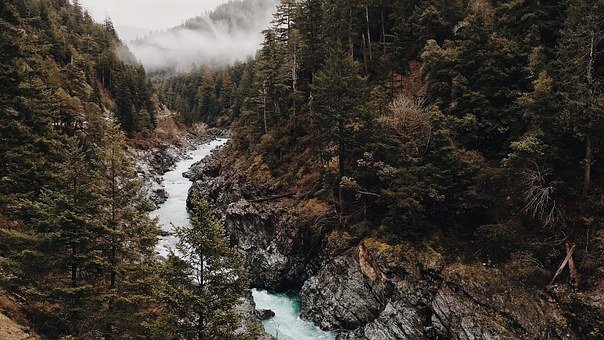
Your best chance of survival is to have your head clear and you’re thinking straight. Then take action by building a fire, insuring you have sufficient water and building a shelter. Do not just sit there hoping to be found soon. If you do that, you could die.

If you liked this article, please follow me. I’ll be bringing you more good quality content in the weeks to come.”
Until next time…
Posted in Uncategorized
Comments Off on Solo Hiking Into The Backwoods
Helpful Tips when Camping with a Dog
Those of us that truly enjoy camping, sometimes want our friends and loved ones to come along and enjoy it with us and that includes our 4 legged fur friends as well. Camping with your dog may seem relatively easy if you’ve never taken your dog with you, but for others, you may have thoughts of being overwhelmed.
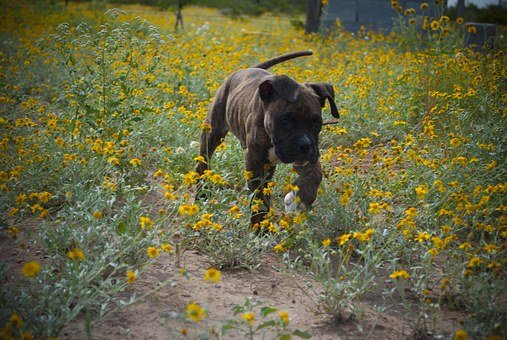
Dogs love the outdoors, so rest assured, they will enjoy the trip and time with you. I have a couple of Dachshunds and they love road trips and getting out. I suppose a good part of that is the Dachshund breed is related to the hunting dogs. These little guys get out and their noses go to work immediately, sniffing out anything and everything and I have to be careful they don’t dart off after some critter.
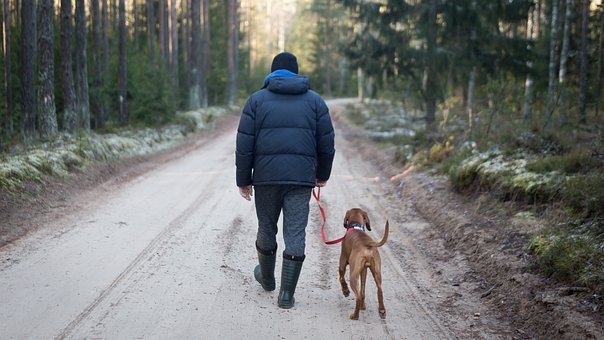
So if you decide to take your dog camping, you may find these tips useful.
Make sure your dog’s papers are in order
Most camps and RV parks are dog-friendly today, but do yourself a favor to save grief later and call the camp site or RV park where you’re planning on visiting to make sure your 4 legged friend is welcome. And, even though they may be pet friendly, some will require that your pet’s shots are current. Be sure to bring their collar, ID tags (license) and vaccination papers from your vet. Just make a copy of everything and stick them in a folder and you’re all set. By the way, these papers could also come in handy in case of any unforeseen emergency.
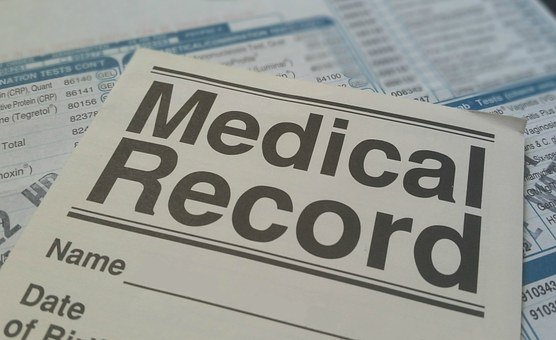
It may be a good idea to visit your vet with your dog before heading out to make sure they are protected from flea and or tick infestation. If not, your vet can administer a shot to insure your pet has a good camping experience. A heart worm check may be in order as well. Remember that you are responsible for your pet’s well being whether home or on a camping trip.
Make sure your destination camp or RV park is dog friendly
It’s just a good practice to do research on the camp or RV park that you’re planning to visit in order to check their rules, especially regarding pets and children as well if you have children with you. So, best do your homework so as not to be disappointed when you arrive.
Make sure to pack a first aid kit for your dog
Packing a first aid kit for your dog is just as important as packing one for yourself. And don’t forget their leash. When you’re in the woods, forest or desert with your dog, many things can happen… and quickly. Dogs’ curiosity is heightened in places where they have not been previously. He or she may decide to dart off on the trail of a rabbit or worse. They are also prone to want to bite on certain weeds or berries and then sickness, choking or even poisoning is possible. Having a pet first aid kit can be very helpful in situations such as these.
Make sure to bring the basic essentials
The obvious items to bring for your dog is food and water. But, give this some thought as dogs will drink more water in the outdoors, especially if taken on hikes and other forms of exercise.
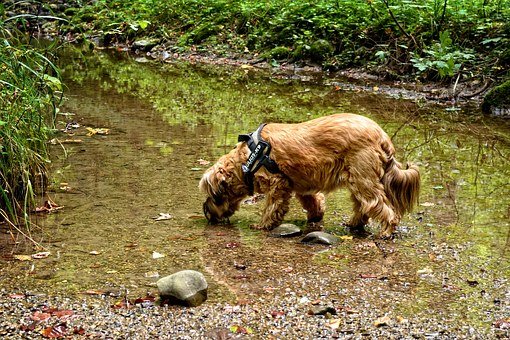
In addition, don’t forget their favorite blanket and toys. Also bring enough plastic bags to clean up after them. Every park I’ve been in requires that dogs be on a leash, so make sure that is in your pet’s equipment bag as well.
If you liked this article, please follow me. I’ll be bringing you more good quality content in the weeks to come.”
Until next time…
Posted in Uncategorized
Comments Off on Helpful Tips when Camping with a Dog
Boondocking Tips – Camping without Electricity
Boondocking or dry camping presents many challenges, especially for those who have not done a lot of dry camping and you are just beginning. I’m referring to the true off-grid types who prefer the desolate outback as opposed to RV parks and camp sites that offer all the amenities of home.
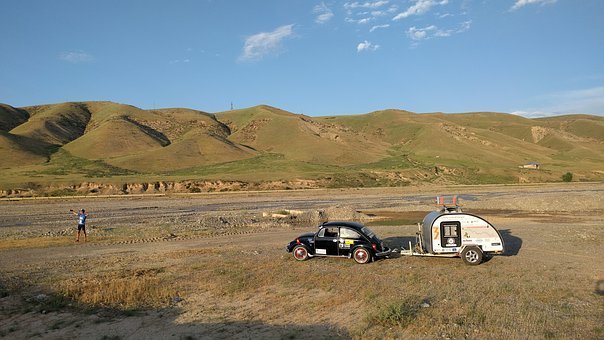
In this article, I’m touching on boondocking without electricity. Boondocking without other hookups, such as water and sewer will be covered in later articles.
Camping has been around for hundreds of years and continues to evolve. In this day and age however, it seems that camping is catching on even faster than in previous generations. There are RV lots popping up everywhere selling everything associated with the camping industry, not to mention all the peripheral accessories such as stoves, heaters, survival gear, dry foods and the list goes on.
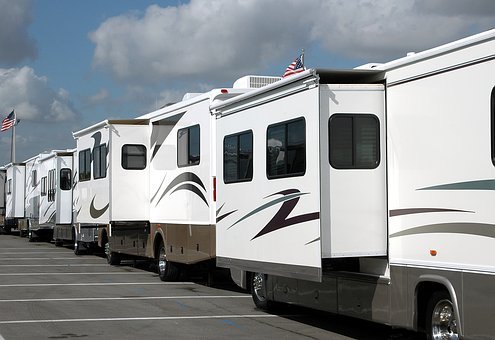
Most RV parks and camp sites offer electricity along with other hookups for the convenience of campers. There is nothing wrong with this as it’s good for families and beginners, as most people appreciate all the amenities they are used to at home. However, there are plenty of outdoors types who prefer roughing it – camping with no electricity or hookups of any type. If you happen to be in the category of those who enjoy camping off-grid, either alone or with friends, there are certain things that could come in handy.
The very basic thing all dry campers should know is how to start a fire. Not only will a fire be necessary for cooking food and heating water for coffee or hot chocolate and washing dishes, but it will also be a source of heat and light without electricity. Sure, you can carry matches (and you should). Just be sure that your matches are protected from getting wet or even damp as they will be no good if that happens. If you have buddies with you, it will be a good idea for them to carry matches as well. Starting a fire is one thing, but keeping it burning is another. If you’re backpacking, this could present a challenge in that some areas, such as BLM (Bureau of Land Management) Land prohibits one from gathering wood in any form from BLM Land for a fire. So you have to carry your own wood with you. Here’s a tip for starting a fire if your matches become useless.
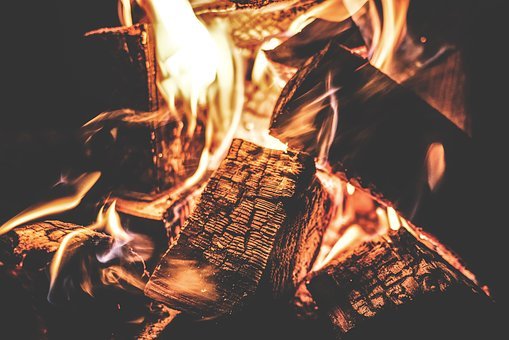
Always keep a small amount of steel wool and a 9Volt battery in your gear. This takes up barely any space and the weight is negligible and you can start a fire anywhere anytime. Refer to this video for simple instructions:
Always keep a small amount of steel wool and a 9Volt battery in your gear. This takes up barely any space and the weight is negligible and you can start a fire anywhere anytime. Refer to this video for simple instructions:
Make sure to research the area where you plan on camping. Again, without electricity, you still should know some basic information about where you’re camping. Always tell a family member and or a friend or 2 where you plan to be in case of any emergency. Know where the nearest road is and how to direct someone to you if need be. Where is the nearest source of electricity and how far from the nearest town are you in case you need to go there for supplies or to a hospital.
Always carry a good flashlight and make sure the batteries are fresh. You haven’t seen dark until you get out into a forest or middle of a desert with no lights around for miles. It can be so dark you cannot see your hand in front of your face.
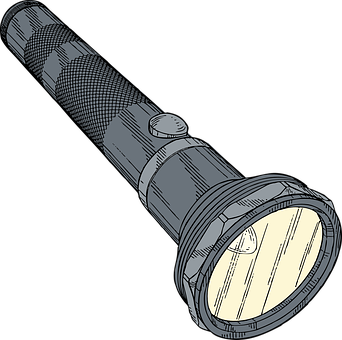
Are you carrying some type of entertainment with you? I don’t mean a portable TV or even a radio, but perhaps a deck of cards or a guitar or a good book or two. After a long day of hiking or fishing or some other such activity, I always returned to my van where I had set up camp. I had my dinner and was asleep shortly after cleaning up. However, there are times when the rains come and I can’t get out.

During those times, I found it very relaxing to break out a good book to while away the time.
Until next time…
Posted in Uncategorized
Comments Off on Boondocking Tips – Camping without Electricity
Boondocking – A Traditional RV Camping Alternative
Boondocking – “The Urban Dictionary.”
Those people who are staying overnight in parking lots for free are boondocking. You can also boondock by lakes, in the forest, on BLM land and anywhere that you can park overnight.
If you’re a camping or RV enthusiast and not familiar with the term, “boondocking”, not to worry because sooner or later other RV’ers will introduce this time honored tradition to you. Boondocking is also referred to as dry camping or dispersed camping and offers many of us the opportunity to enjoy the comforts of our homes on wheels while still enjoying nature. Sure, campgrounds offer modernization and amenities, but who wants to get away from the everyday hectic life to drive to a crowded campground and sit in an RV and watch TV? Campgrounds have gotten to the point that they stack RV’s in side by side where you can hear all that goes on in all the RV’s around you. That isn’t my idea of getting away for the weekend or a vacation.
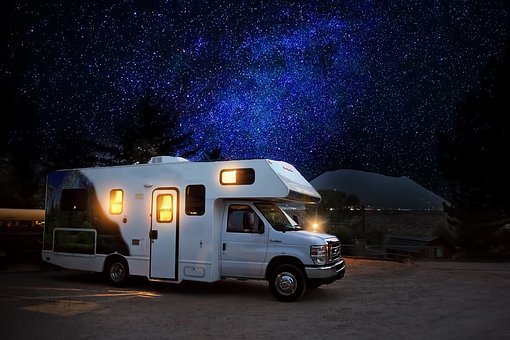
Boondocking is also an alternative to stopping for the night in a campground while traveling from destination to destination. Many RV’ers find Walmart parking lots and truck stops to be the answer. Cabela’s also opens their parking lots to RV’ers for a night’s stay as do some other companies. Companies that open their parking lots for an overnight stay know the value of catering to the RV community as they provide a solution to your camping supplies and other outdoor needs while on the road. If you are boondocking in these parking lots for convenience while heading toward your camping destination, there are certain boondocking tips and camping protocol to follow; the first of which is courtesy and common sense. If you are boondocking in a Walmart parking lot, it’s a good idea to check with the local manager to make sure it’s OK to spend the night there. It used to be that Walmart welcomed RV’ers with open arms. In the last few years, Walmart has left this policy to the local managers. Some Walmart’s now have signs prohibiting overnight parking. The last thing you want after settling down for the night is a knock on your door at 3:00am from your local police department.
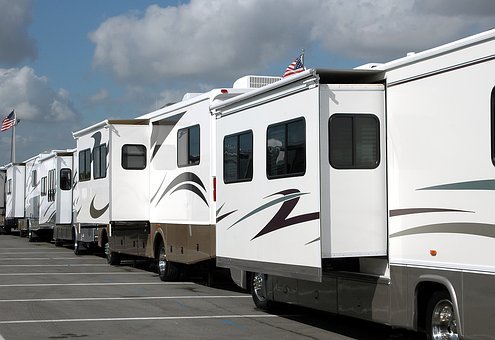
This is due to in part to local city ordinances prohibiting overnight parking, which could be due to local campgrounds losing money to companies like Walmart that allow free overnight parking. And some is due to RV’ers not respecting Walmart by leaving their trash and garbage in the parking lots. I’ve been in some Walmart parking lots and seen campers pulling out the lawn chairs and camping equipment and setting up a campsite. Doing this will quickly ruin the boondocking option for others and sour the reputation of campers in general. Any overnight RV stay in public locales should be treated as a privilege and not an entitlement.
The same holds true for boondocking in remote locations. Campers should always honor the environment and leave it cleaner than it was when you arrived. When RV camping without hook-ups, there are other considerations as well that will make your boondocking more enjoyable. Water and power utilization and conservation is always at the forefront of concerns among dry campers. With experience comes planning and RV’ers readily adapt to conserving both. Water conservation while boondocking boils down to paying attention to details. You must keep an eye on your water supply so it doesn’t run empty. You quickly learn you’re not home with an endless supply. For example, you learn to brush your teeth without letting the water run continuously. Another good habit is to remember to always shower using the wet and rinse technique. There are many other water conservation options available for dry campers as well and the RV industry has a wide variety of electronics and accessories available to help you. Power and electrical needs follow the same laws of conservation and require paying attention to detail as well. Inverters, generators, and solar panels are all options and in combination can extend power usage. Just remember, planning is paramount when dry camping. You must consider all your electrical needs. Most people in the RV community I run into on the road are either full-time or most full-time RV’ers or Van dwellers and as a result and out of necessity have become minimalists. Therefore, their electrical needs are not nearly what they were when living in a traditional home. I spend a great deal of time in my van traveling throughout North America and I do not have a TV, satellite dish, or microwave. I gave all that up to get out and enjoy nature. I travel with only a few electrical items; namely a laptop computer, smart phone and refrigerator. I have solar panels that provide all the electricity I need to run my laptop, keep my phone charged and my refrigerator cold. Verizon is my provider and my smart phone can be used as a “hot spot” to provide Internet access for my laptop. I can always visit a McDonald’s or some other establishment for free wi-fi if needed.
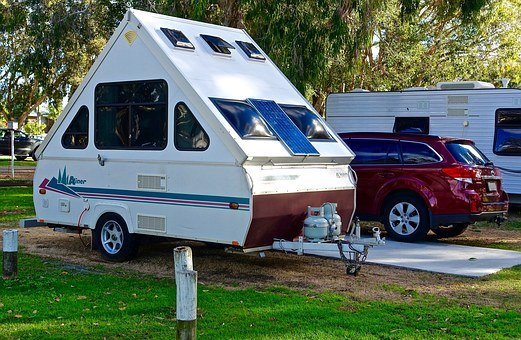
Boondocking can be intimidating at first, but with thought and planning it can provide you with places to visit and see that typical RV’ers never get to experience. When I retired and decided I wanted to travel this great country in an RV, I bought a large RV. Big mistake. Since I travel alone, I found this large RV was just too big for me and what I wanted to do. I found that I was limited in my desire to do “real boondocking”, that is, totally off-grid and far back off the beaten path. This large RV simply was not made for that. Not only that but the cost of gasoline was hurting my budget. I was getting something like 9 miles per gallon. You do the math. I took 2 trips in that RV before deciding to sell it. I was lucky to break even when I sold it. I had done a lot of research online about vans and found some great ideas for traveling in a van. So, I bought a cargo van and had it built out to my specs. This van is all that I had hoped it would be. Other than driving it and sleeping in it, I spend very little time inside my van. I cook all my meals outside unless the weather is not cooperating. My van has forced me into becoming more of a minimalist than I already was. I found out I don’t need all the clothes I was carrying. I don’t need that big bathroom with a home-like shower. I have a portable shower that fits my needs very well and I also have a gym membership with a national chain and I can stop at any of their locations for a shower when on the road. If one is not available where I happen to be (which is rare), I can also stop at a truck stop and rent a shower for about $8.00, just like the truckers do.
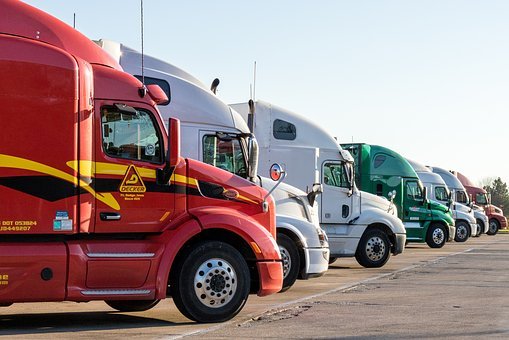
Further, don’t feel as if you’re all alone out there in the great outdoors when it comes to boondocking. A simple online search will show other RV camping enthusiasts who share boondocking tips, routes, locations, and many other valuable pieces of information that only the experienced boondocking camper would think of. Also available are many apps that will show where free campsites are located, campgrounds and national and state parks, etc. There is also a huge assortment of LTV (Long Term Visitor) Areas in California and Arizona, and BLM (Bureau of Land Management) Information available detailing designated wilderness areas, regulations, and amenities. Other experienced boon docking RV campers have put together huge online lists of creative ways to boondock, camping and boondocking forums, travel blogs and other valuable resources. So if boondocking is in your future RV camping plans, you will find you are in good company.
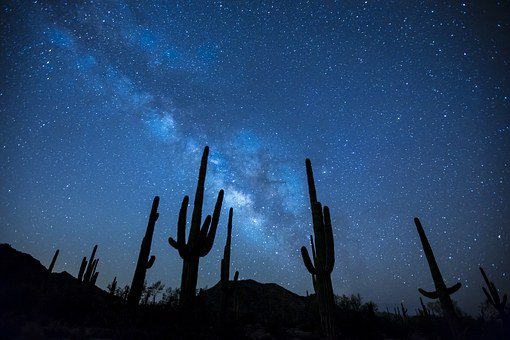
If you liked this article, please follow me.
Please stick around, I’ll be bringing you more good quality content.
Until next time…
Posted in Uncategorized
Comments Off on Boondocking – A Traditional RV Camping Alternative
Dry Camping – Is it For You?
First off, for those few that might not know what dry camping is; simply defined, it’s camping off-grid with no hookups such as water, electricity and sewer. Also known as boondocking.
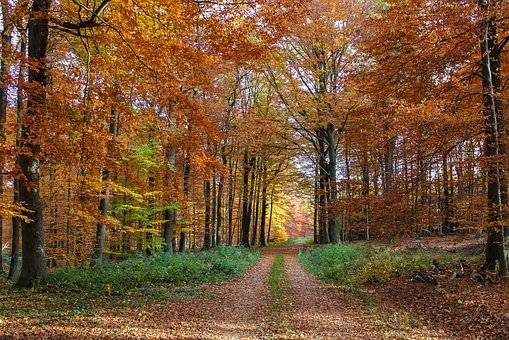
A big advantage of RV (including vans) travel means no more sleeping on the ground in a tent and having to deal with rain, soggy sleeping bags, mud and all that goes with that. With an RV or van, all your camping gear is with you inside your RV and basically all you have to do is pull over, put your vehicle in park and turn your key off. Practically any piece of ground, parking lot and some city streets can become an instant campsite for a night. I think the temptation to dry camp or boon dock appeals to that free spirit in most of us that enjoy camping in the great outdoors. Being around other campers in an RV park setting is a feeling of security and a sense of community to some, but for others, the crowded conditions on busy weekends and holidays with campers parked on top of each other, not to mention the noise does not make for an enjoyable time camping. Setting up camp along a quiet river or the furthest point back in a thick forest is what it’s all about to most. Hardly any of us want the sound of an idling diesel motor home or the drone of a generator breaking the silence of our chosen campsite as we throw that fishing line into the rushing waters of that trout stream.
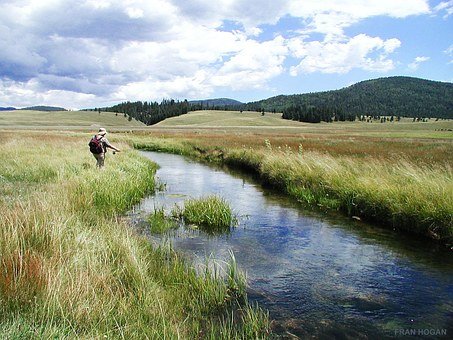
It seems that today, more and more people are joining the ranks of campers and buying that motorhome, van or popup camper and heading out. Well, because of all this interest in the great outdoors, you may be surprised when you pack up that new motorhome and head out to the mountains in the fall to enjoy the changing colors. You arrive at your destination thinking that you’ll just pull into a campground and set up camp. Oh, you didn’t think about making a reservation? You find out quickly that others have the same idea and the park is full. What to do? It’s getting late and everyone’s exhausted. Any experienced RV’er knows full well how quickly campgrounds can fill up. In situations such as this, you may be forced into dry camping in a Walmart parking lot or deserted field.
RV parks, even the lesser known ones are becoming quite pricey; even as much as a moderately priced motel. If spending a night at a state or national park appeals to you, you’ll find they are usually cheaper than RV parks and usually have some terrific views as well. But again, it’s best to check with that park for reservations. Most of my friends that I’ve met over the years, rarely pay for camping. They opt for the wide open spaces of the deserts or mountains or other free dry camping areas. I’m talking about areas, some of which are so remote that the expensive satellite dish on that million dollar diesel pusher won’t even work. I’m talking about generating your own power with solar panels, carrying fresh water in, eating food from tin cans and fresh trout from that rushing stream you’re parked by. It doesn’t matter if you’re in a converted cargo van, an old used truck camper or a million dollar diesel pusher, free camping can be found throughout the millions of acres of BLM (Bureau of Land Management) land.

However, contrary to popular belief, the world is not your oyster. There are laws and rules you must follow and obey. Safety is another issue and must be factored in. Many of the smaller, towable RV’s on the market do not have generators, inverters or even solar power. When deciding to dry camp, all of this has to be considered. And, don’t forget to carry enough water to sustain you and your crew for the duration. Have you considered hygiene, showers, toilet requirements and the like.

If you’re an inexperienced dry camper, safety is a big issue. While most campgrounds are relatively safe with their fences and lighting and so forth, dry camping has it’s own safety issues to consider. Think about being all alone in the deepest, darkest forest. When I made my first trip off-grid to such a place, every snap of a tree branch sent me into a sitting up position, thinking big foot was coming for me. After a few such trips, I no longer have those concerns as it’s all part of the experience of dry camping, but I never compromise the safety factor. On the other hand, I’ve slept under street lights on city streets and Walmart parking lots. These situations do not make for the best night’s sleep either but it does provide some assurance of safety for some. Just be prudent and insure your doors and windows are locked and your keys are close and easily accessible in case you need to move fast. In the case of dry camping, I always place my keys by the ignition and park my van headed in the direction of the road I want to leave by in case I have to leave in a hurry. I also have a can of wasp and hornet spray near by. No, I’m not afraid of being attacked by wasps during the middle of the night, but I have learned that a can of wasp and hornet spray can spray an accurate stream 10-12 feet easily and it’s strong enough to disable a full grown man long enough for me to get away. I rarely carry a firearm, not because I don’t know how to use it, I do. Being former military, I am well versed on the use of a firearm and I have a concealed carry permit, however, some states I travel through and camp in does not allow firearms… period! For me, it’s simply this; I do not want to be stopped for a traffic infraction or some other reason and have a cop find the firearm in my vehicle and arrest me for it. The wasp and hornet spray is adequate for my protection. Some I know, do carry firearms, some carry bear spray which is also a good protection agent. I suppose a Louisville Slugger would work as well, but I don’t want some would-be thief or suspicious person that close to me.
Sam Walton, the founder of Walmart started letting RV’er stay in Walmart parking lots overnight many years ago. That policy is still in effect today (for most Walmarts). It’s my understanding that the local manager makes that decision for his/her store, so if Walmart is your preference for a night’s stay, it may be a good idea to check with the local manager. I’ve seen some Walmarts that strictly prohibit overnight stays and are posted as such. A lot of this has to do with local city ordinances as opposed to Walmart’s policy. Some overnighter’s have also caused the problem by leaving their trash and worse in Walmart parking lots. I’ve seen RV’er roll out their awnings, set up grills, let out their roll-outs and place chairs outside and basically set up camp. This is not what Walmart intended with it’s generous overnight stay policy.
If you’re new to the dry camping idea, it might be best to take a dry run (no pun intended) before heading out to the desert or mountains and no hookups.
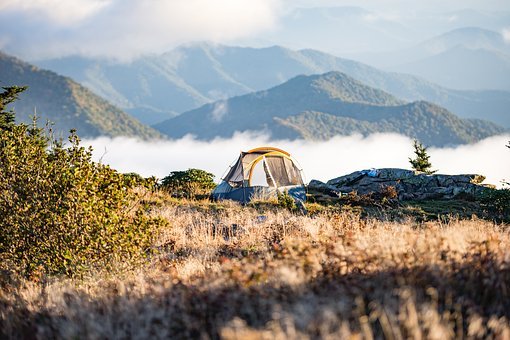
A lot of RV parks have an area set aside for primitive camping, for tents, etc. It might be a good idea to spend a couple of nights in such an environment to see how you do with no hookups to water, electric and sewer before heading out to the unknown. You’ll get an idea as to how much water and propane gas you will need to carry and how you fare without electricity and sewer. You’ll also get an idea as to how to prepare for provisions to bring with you when you dry camp.
If you liked this post, please follow me.
Until next time…
Posted in Uncategorized
Comments Off on Dry Camping – Is it For You?
RV vs Van Living – Tips
In my last post I touched on traveling and or living in an RV as opposed to traveling and or living in a van and I mentioned several differences. One thing I did not mention is this. I found out early on that I truly love the more remote dispersed camping spots where I can enjoy amazing scenery, nature and hiking. That ‘extra’ elbow room when I camp is very appealing to me. I found that with my large RV, I could not access those areas and my van gives me the freedom to go anywhere I wish to go. I have nothing against RV parks, it’s just that they are not for me. I find them too crowded; some can be noisy and most are too pricey.
One of the great things I like about boon docking is the ability to move my van around and park it in such a way as to take advantage of the sun on my solar panels for max sun power.
I also have a long extension cord that affords me the ability to park in the shade if I desire and then place my solar panels in the sun without having the sun beat down on my van.
Radiant Heater
This is one item to consider when dry camping as there are no hookups off grid and you may find yourself in a cold area from time to time and some folks enjoy winter camping. I used to carry a small propane heater that was very efficient, but in becoming a minimalist, that heater was one of the things that I got rid of. I do very little cold weather camping, but there are times, even in the Sonoran Desert in southwest Arizona, when the temperature will get down into the 40’s at night causing a chill in my van. When that happens and if I feel the need for some warmth, I simply turn on my cook stove and in a matter of 5-6 minutes, the van is toasty. One word of caution here; no matter what type of heating unit you may use, it’s imperative it’s vented. Propane heaters can kill you. When I use my cook stove inside my van, I always make sure to crack 2 windows to insure I have proper ventilation.
Lighting
Since I sold my large RV and now travel and live out of my van, I no longer have the power hungry lights. In fact, I’ve learned that I need very little lighting in my van. I do have a series of puck lights that I bought off Amazon and have them strategically placed around the interior of my van and I can operate them remotely. Each puck light has its own power supply consisting of 3 triple A batteries. Normally, one or 2 of these puck lights is adequate inside my van, even for reading and the batteries are good for a very long time.
Powering the van or RV
Batteries
Batteries are the lifeblood of a dry camper or boondocker. Regardless of what you prefer; solar or generator, you need a way to store power. My RV had a 12 volt deep cycle RV / marine type battery. I could dry camp with this OK and it was adequate, but usually depleted the charge nightly. I had no solar, so the only way to recharge it was when I was driving my RV and the RV battery would recharge the house battery.
Generator
When traveling, I find it very interesting that at times when off grid, I find myself among other van dwellers. I suppose it’s because we all use the same apps for finding free camp sites, BLM sites, etc. I have also found that this ‘community’ of RV / van dwellers can be very welcoming and friendly, often inviting others to share a drink or a meal. And inevitably, talk centers on our homes on wheels and sharing information. During these conversations, I’ve learned that a good many van dwellers carry a generator. As mentioned previously, I have solar panels and so far, I’ve had no problems in charging my house battery with my solar panels, but some folks opt for a generator instead of solar. A big advantage of a generator is that it can provide all the power one needs with the exception of running an air conditioner. It affords you the ability to use a microwave, use other appliances, watch TV, charge your house battery, etc.; all the conveniences of hookups except for the carrying of gasoline for the generator and the noise. Noise can be an issue with other nearby dry campers.
Following are some tips on using generators so as not to annoy others.
I have found that the majority of generator owners use small, inverter type generators such as the Honda EU2200i sold on Amazon.com which are relatively quiet.
• Use an ‘Inverter Type’ generator as opposed to an open frame construction. These inverter types usually have an economy mode so the engine revs up only as needed and use less fuel.
• Don’t set up your camp near other campers that have solar panels displayed. These people invested in solar so they wouldn’t have to hear the noise from generators running.
• Common sense goes a long way when deciding when to run your generator. Near-by folks will be annoyed by the steady drone of your generator during early morning and evenings as they sit out enjoying the outdoors.
• Position your generator so as to reduce noise. Using your vehicle between your generator and other campers will help.
Solar Power
My solar system is a Renogy, suitcase type, 100 watt solar panel system. I chose this because I didn’t want the panels permanently attached to the roof of my van as I prefer the stealth look to my van. This portable system in a suitcase is neat as it folds up and can be carried in a suitcase type bag.
Once put away in its bag, it stores easily and out of the way inside my van.
When I’m ready to recharge my house battery, I simply take the solar panel out of its case and set it up to capture the sun. The suitcase comes equipped with a charge controller built is, so it’s very easy to use.
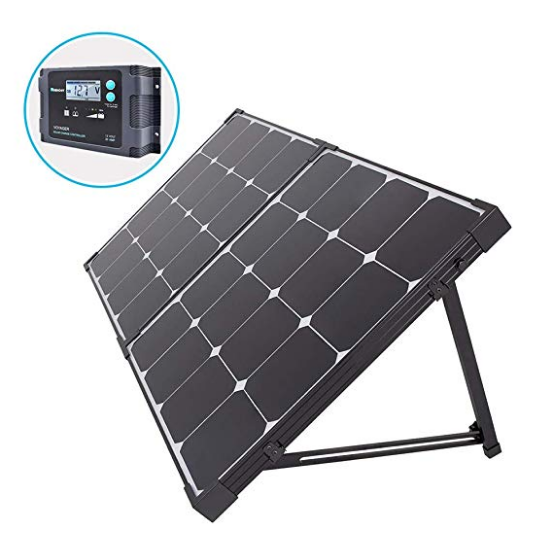 On a bright sunny day, I can recharge my laptop, phone and any other electronic devices and have a fully charged house battery to keep my refrigerator running.
On a bright sunny day, I can recharge my laptop, phone and any other electronic devices and have a fully charged house battery to keep my refrigerator running.
Inverter for AC Power
The only thing needed now is an inverter. This device takes my 12 volt DC battery power and changes it into 120 volt AC power. This is the same as you would use in your home with regular household plugs. The inverter allows you to power up and charge AC only devices without the need for a generator.
I have a 500 watt unit and it serves me well. It will power all my needs, such as my laptop computer, charge my phone, etc.
Fan – 12 volt
I’ve never been in a situation where I felt the need for air conditioning. A fan of course is a different matter. When I decided to purchase a fan, I opted for a Fan-Tastic Fan.
It runs on DC and uses very little power, something like an amp or 2 and moves a significant volume of air with very little noise. It’s a great fan and perfect for dry camping. The amount of air it circulates makes a huge difference inside my van.
Water and Showering
With my RV, I had plenty of fresh water holding capacity and ample tank space for gray and black water. With my van, I don’t have that luxury, but again, I chose dry camping in areas my RV would not go over comfort. Having made that decision, I have had no problems. I can carry enough fresh water for my needs for a week and then It’s just a trip back to the closest town or fresh water source for more water. I have a porta-potty for toilet needs and a portable shower. Taking a shower has not been an issue. I bought a portable shower on Amazon for under $40. I heat water on my cook stove and mix it with cold water in a (Home Depot) 5 gallon bucket. I then drop the base of my shower in the bucket and hang the shower from a limb or use the suction cup attachment and affix it to my rear van door.
The battery operated shower can be charged with an included USB cable.
This shower works great for me. In addition, I have a gym membership to a nationwide chain that I can use basically anywhere I travel, so that’s an option. If I’m on the road and I find myself in an area and my gym doesn’t have a facility there (which is rare), I will on occasion, visit a Pilot or TA Truck Stop. You can rent a shower there for about $8.00, depending on location. So you can see, just because I no longer have my big RV, I do not have to do without.
Trash and Garbage
Usually where I camp, there are no garbage or trash cans. Some BLM Lands do have trash cans, but they are not too plentiful. When dry camping, it’s a matter of, “if you take it in, you take it back out.” I’ve had no issues with trash and garbage. I simply double bag any garbage so as to eliminate any odors and carry it to the nearest trash receptacle and dispose of it.
Internet
If you’re a big Internet user and like to dry camp, then you’re going to be disappointed by the lack of Internet access. It’s basically non-existent where I boon dock. I will say this, of all the folks I talk with regarding this, Verizon seems to be the best, especially out west where most dry camping takes place. I’ve been a Verizon subscriber for years and can attest to the fact that Verizon rarely lets me down, except in very off-grid areas. I usually check my email, etc when I go back into town for supplies, etc. There’s usually a MacDonald’s or some other establishment that offers free wi-fi. I also have an unlimited plan with Verizon including data and I can use my iPhone as a “hot spot” which provides me with wi-fi for my laptop if I need it for any reason.
Conclusion
So, there you have some basic dry camping or boon docking tips that I use. I hope that this information has helped you in some small way as you plan your next boon docking trip.
Posted in Uncategorized
Comments Off on RV vs Van Living – Tips


